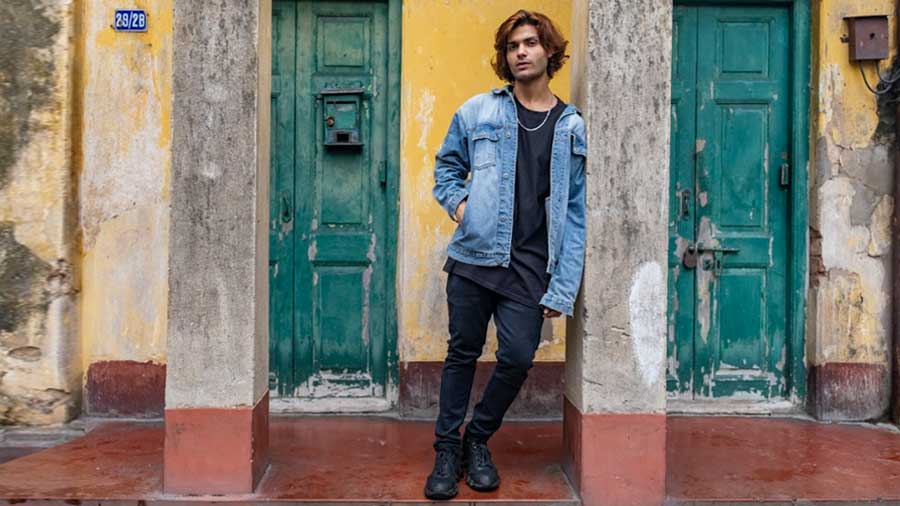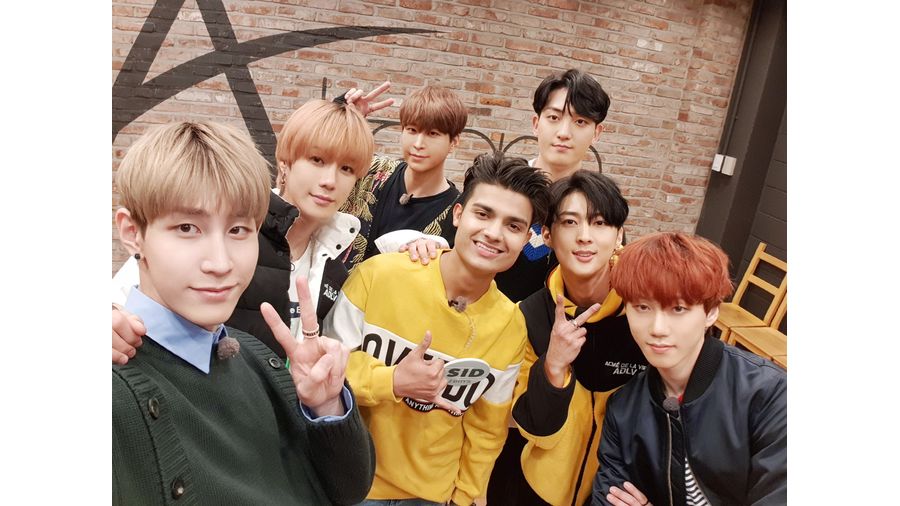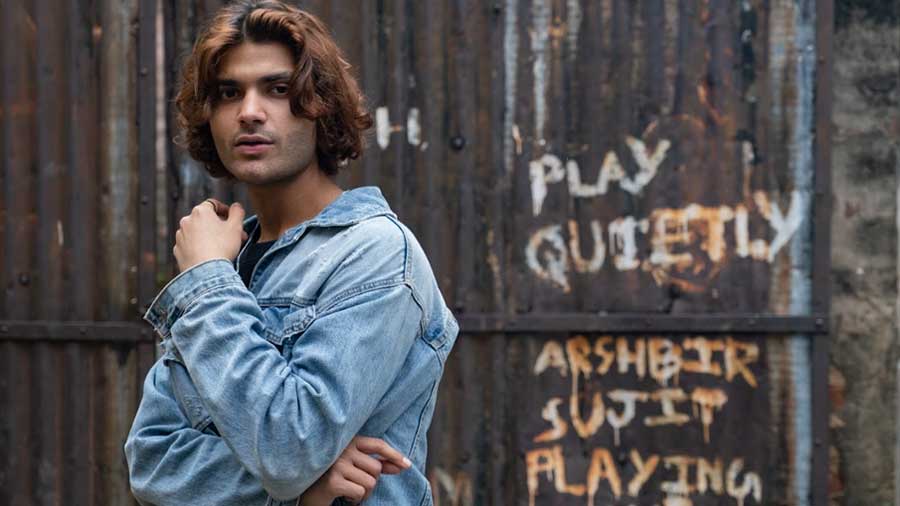In 2018, Sid Arora marked a milestone for Indian singers when he was invited to audition for the K-pop group Z-Boys. The international boy group released their first track No Limit in February 2019 and the same month played their first show at the Z-POP DREAM Live in Seoul concert at the Jamsil Indoor arena.
“It was in front of a massive audience, possibly around 10,000 people at Jamsil Indoor Stadium in Seoul, it was a milestone in my K-pop journey,” says Arora, who is originally from Uttar Pradesh. A part of the South Korean collective Z-POP DREAM project, the boy band tagged their music as Z-pop — a genre that explores Gen-Z voices in Korean pop.

Sid Arora in Kolkata Ritagnik Bhattacharya
Sid, whose real name is Siddhanth, left Z-Boys in 2021 to pursue a solo career closer home. He released a string of original singles that found success. “I had been exposed to so many genres of music when I was growing up and I have been performing since I was around two. I always felt like I belonged on a stage,” shares Arora.

Sid was a part of the Z-Boys for two years
The artiste, who was in Kolkata for a brief trip, sat down with My Kolkata for a freewheeling chat about his career, his K-pop stardom and his next move. Edited excerpts from the chat…
My Kolkata: Tell us how your K-pop journey started…
Sid Arora: I was invited to audition for Z-Boys in Mumbai in November 2018. Back then, I was an independent cover artiste and I had my YouTube channel. I did shows as well. I did see some success in my career even before I joined the Z-Boys. Some of my covers went viral, I even found some listeners in Pakistan and Bangladesh because I would bring in some diverse cultural influences in my music.
The audition involved four rounds — they were focussed on vocal skills, dancing, performing skills and an overall approach to carrying yourself. They chose three people and finally zeroed in on me. A few weeks later, I flew to Seoul. I was the last one to join the band, so I had quite a bit of catching up to do.
Tell us about K-pop fandom in Seoul. How are things different, since it’s the capital of that culture?
It’s obviously a big deal over there. Things are quite different. I would say the fans are quite poised and respectful, but they are quite devoted too. I think they appreciate and understand the boundaries.
Choreography is quite crucial in K-pop…
Yes, the idea of performing is quite key to the genre. There was intense dance training and I remember we recorded our first single called No Limits after a month of training.
How much did you know about K-pop before you were invited to audition?
When I was invited to the auditions, I had to ask them what K-pop was! I was very familiar with the American pop scene and some aspects of global pop music, but did not know much about Korean pop.
Are there any bands that influenced your work in the K-pop circuit?
For my K-pop journey specifically, I would say bands like Blackpink or BTS were the major influences. In fact, all the new performers over there look up to the bigger bands who have made it.
Why did you decide to move on from K-pop?
I left Z-Boys in early 2021. I think every artiste is different and if you bring in seven different people and put them in a box and introduce them to a similar way of performing, each artiste will express themselves differently. It just made sense for me to move on and explore something on my own.
You’ve performed in Kolkata as well?
Yes, but I was 13! I think it was for a convention and I was pursuing Hindustani classical music at the time. But I was exposed to western classical music during my childhood as well, so I grew up listening to all sorts of music.
Did you meet any fans in Kolkata?
I did, yes. The city is really inclined toward K-pop, even more so than others. It’s a beautiful city with beautiful people and the fans are quite well-versed in K-pop culture. And I loved the mishti doi!

‘The city is really inclined toward K-pop, even more so than others,’ says Sid Ritagnik Bhattacharya
Tell us about your foundational years. What influenced you to become a performer?
I have been performing on stage since I was two. It wasn’t music essentially, I would perform in skits and plays and I have always loved the stage. When I was at Christ University in Bengaluru, I discovered how passionate I was about performing. I have never been nervous about being on stage and I think that really helped me during my K-pop journey. I always felt like I belonged there.
I have always been keen on music, I have been well versed in classical genres (both Indian and western). I love Mozart! My mother considered music as a path for me because she thought my voice sounded good.
How is Z-pop different to K-pop?
It’s mostly just the language barrier. It’s called Z-pop because the performers are all part of Gen-Z — they are born in 1995 or after that. And Z-pop songs are sung in English, not Korean.
What’s your favourite Korean comfort food?
When I was in Seoul, it was Korean fried chicken. But I’m a vegan now, so I don’t know what I’ll like.
Are you planning to release new music? And do you want to stick with pop?
It really comes down to how you define pop and my theory is that it’s about being different and yet being relatable. And at the moment I am moving in that direction, there are already a few developments.